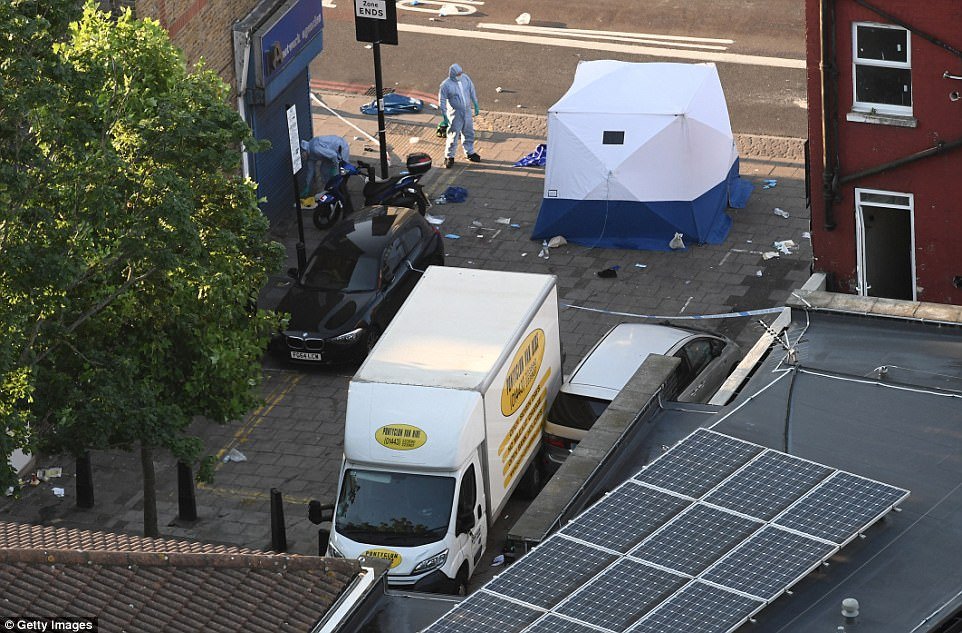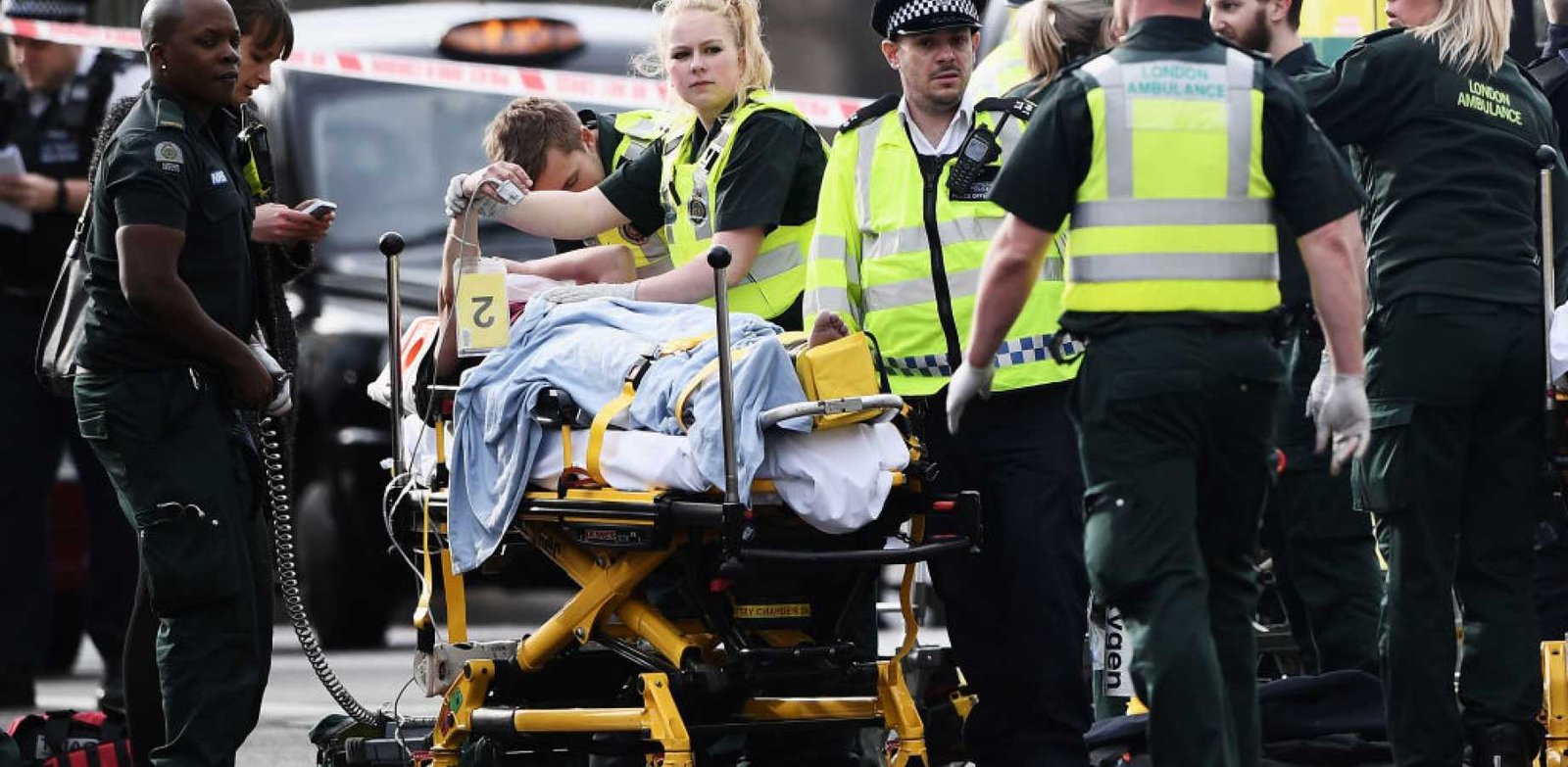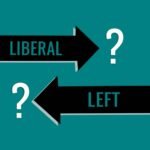If we are to prepare ourselves for the future, we must take a serious look at where the discourse around terrorism is going wrong.
After white terrorist Darren Osborne mowed down Muslims leaving Finsbury Park Islamic Centre, our already febrile conversation about Islamist terrorism and anti-Muslim bigotry reached fever pitch. I have previously talked about how our conversation about Islam must pave the way for those who have the most influence in creating anti-terror legislature, in funding security and police services and in shaping our views about terrorism as a society. In the wake of this attack, the emphasis is no different. Here, we must likewise pave the way in our analysis of what is happening on our streets.

So, what is happening? As Islamist terrorism has grown in the west, so have the concerns about anti-Muslim bigotry. Until this point, honest commentators have pointed out that it takes a society that is overwhelmingly tolerant, liberal and sensitive to the plight of minorities to be concerned about this in the first place. As I have previously wrote, this concern has seem misplaced against the backdrop of an inability to talk about the problem of Islamism and the illiberal beliefs practised in the name of Islam in the UK. This is especially as anti-Muslim bigotry has rarely surfaced beyond crimes of hate-speech. So how did those focused on anti-Muslim bigotry react when a terrorist with such convictions violently attacked innocent Muslims?
Sadly, it was no surprise that those who might usually call for all the facts to come in had no trouble calling this a terrorist attack when it was known that the attacker was white and the victims Muslim. No one waited to see if the attacker was mentally ill, as the attacker’s sister later remarked, or claimed that he must be a ‘lone wolf’. In fact, many preempted those responses from right-wing obscurantists, as if to forget such responses would be at best a mirror to their own previous hypocrisy after Manchester and London Bridge. No one said ‘this is just an extremist perverting peaceful right-wing, anti-immigration sentiment’. ‘Wait until all the facts come in’ – the line we were previously and rightly accustomed to – turned quickly into ‘the media is covering this up, not giving it the same air time, they won’t even call it terrorism!’. Many a word in response, pouring from lungs admittedly exhausted by forced responses to terrorism, reeked of shameless hypocrisy.
The reason is that in reality, the responsible parts of the media do what they always do and wait until they know more. The unscrupulous parts of the media do what they always do and shamelessly weaponise it to support whatever anti-west or anti-immigrant narrative they thrive on. The chattering classes do what they always do; on one hand defend, deflect, obfuscate, share prayers and preach love if the attacker is Muslim. Yet on the other they write diatribes, get angry, preach disgust and lurch in pain if the attacker is white. The principles we should be re-affirming at any stage of a developing story about an attack should be unflinching and must not depend on who the perpetrator or victim is. That they have changed depending on the ethnicity of the attacker unveils the maddening condescension of the left for whom liberalism, human rights and freedom (either to pray or to party in peace) are tenets worth more of a reassertion when those who have been denied them are Muslim. If the person denying them from others does so himself in the name of Islam, the pertinent concerns are of a different kind.

Such concerns range from worrying about secondary breeches of freedom in the form of ‘Islamophobic’ hate crimes, to finding the appropriate mixture of Western foreign policy and pre-existing anti-Muslim bigotry to blame. Until now, this smoke plumed without fire. Those denied their freedoms in the primary atrocity are usually side-lined as we search our souls to ask what combination of oppression and disaffection could possibly drive someone to do such a thing? The answer rolls sweetly and self-satisfyingly from everyone’s lips when the terrorist is white: ‘racism, bigotry, white supremacy and far-right groups’. The answer gets stuck in peoples throats when the attacker is nominally a Muslim. The search for a reason goes on and on, whilst those searching fail to pay attention to notice everything from the texts about martyrdom sent before the attack, to the words uttered as it was carried out.
When an Islamist commits an attack against young innocent children, Jeremy Corbyn claims Western foreign policy is partly to blame too much debate and refutation, but partly to praise and nods of agreement. When a white terrorist commits an attack against innocent Muslims, people are much less prepared to say recent Islamist terrorism is partly to blame. They are more likely to frame the attack as a mindless backlash or the second wrong that doesn’t make a right. But when the jihadist in the street yells ‘this is for Syria’, our response is not to shake our heads at an irrational response to a legitimate grievance, but to nod as if they have a point. Moreover, in the case of Finsbury Park, calling the recent Islamist attacks ‘a legitimate grievance’ appears also to be a step too far. The truth is, no one should say Western foreign policy is ‘to blame’ for jihadist attacks, nor the jihadist attacks to blame for anti-Muslim terrorism. Why do terrorists deserve even a sniff of an excuse for abhorrent crimes, that others with the same grievance would never commit? Just as the response from most civilised people to the atrocities committed in the Middle East by Western forces is political agitation or democratic protest, so is the rational response to Islamist attacks in the West by protest and, ironically, calls for a more considered foreign policy. We start a ‘stop the war coalition’; we don’t start wars on our streets.
As Douglas Murray has outlined, the search for who radicalised this terrorist and who is to blame – a form of finger-pointing that is largely absent from Islamist attacks – marks a ‘hate preacher hypocrisy’ that is telling and dispiriting all at once. Whilst some wag fingers at the rhetoric of the Daily Mail and The Sun, or fallaciously accuse Douglas and Maajid Nawaz of being hate preachers, few are willing to note that there are almost no persons or organisations condoning violence in service of anti-Muslim bigotry in this country. Furthermore, this newfound conversation about how terrorists are radicalised appears to be missing something. Those searching for a path from anti-immigration to anti-Muslim terrorism – who come up short and have to blame far from hateful newspapers or journalists – are the same people who never search for the much clearer path to Jihadism. Jihadists self-reportedly look forward to being an agent of jihad. Therein lies the key to the threat of Islamism; a robust, theological basis on which to turn festering hatred, disillusionment or material grievances into the highest honour of holy war. A corollary mechanism for recruiting white supremacist terrorists is not so clearly defined.

Whilst anti-Muslim terrorists might feel, in their sickening racist worldview, that they are doing us a favour by killing innocent people simply because they are brown-skinned Muslims, they must also know that the response to them from the rest of civilised society will be condemnation. Jihadists, on the other hand, might be expecting small pockets of sympathy from some equally extremist members of their community. This ranges from the attacker’s Islamist associates who make up the handful of arrests we see in the aftermath of attacks, other Jihadis from small cells of terrorism who are planning attacks themselves, and members of the wider Muslim community who have sympathy for the motives of the attack but condemn the act itself. The latter group often polls at the highest and most alarming rates.
It would not be surprising if this group had a sizeable white British counterpart of those who sympathise with the underlying motives in Finsbury Park, be it some perverted act of retributive justice. We have already started to see disgusting tweets to this effect which show anti-Muslim bigotry and Islamist ideas to be two sides of the same coin. They are both amenable to radicalisation and capable of producing support for, or the committing of acts of unthinkable, violent hatred. To a point of difference, the jihadist-in-waiting is satisfied to imagine the support from God himself. Ethno-nationalist and separatist groups rarely carry the same pious Christian conviction they once did. Not a single word of this is in any way intended to defend this terrorist. The chances are he was still a cogently racist person; chances are he was motivated by anti-Muslim bigotry and emboldened by rhetoric that comes out of the far right. What I hope to have outlined, however, is the differences between white-supremacist terrorism and Islamist terrorism, subtle as they are and to no reduction of disgust.
How should we respond? Perhaps we should ask ourselves why it is that people are still unable to distinguish between Muslims as an overwhelmingly peaceful group and pernicious Islamism as a fundamentalist doctrine? For much of the left, to discern between Muslims, Islamists and jihadists would be to concede a connection between terrorist atrocities and Islam itself. Yet when the left fails to make the distinction, when people claim it has ‘nothing to do with Islam’, when reformers and theologians are deprived of the very terminology they have carefully considered to describe the phenomena in their own communities whilst protecting the people in them, then the left must face some of the blame for leaving hateful, violent far-right thugs to make their own judgements. The most succinct description of this phenomenon comes from Maajid Nawaz; he laments the risk of ‘being blinded in our left eye whilst popping a blood vessel in our right.’

We should also look at far right, anti-Muslim groups- the bigots inflaming and leading them and the patterns of behaviour that lead a man to do what happened at Finsbury Park. We should, however be mindful of the free speech of legitimate anti-immigration voices in the process. Neither Al Quds day nor an EDL march should be shut down, so long as it is non-violent and it stays within the tolerances of necessarily lenient hate speech laws. For as we continue to label legitimate groups as racist for expressing their concerns about immigration, we dis-empower those we should at least be listening to. We do this by painting an alluring picture to the genuine racists, neo-nazis and white supremacists who see what is billed as the most organised racist group in town, who join them and make the once-fallacious accusations stick to the new minority of real bigots. We should not continue to claim in modern Britain that white supremacist terrorism is a problem as widespread, as well-funded and thus as organised as Islamism.
Might we need to be prepared for, and actively investigate the possibility of more of these attacks? The answer is that when between 4 and 24 per cent of Prevent referrals have been of a right-wing genesis, we already are. Yet in what ratio might we apportion our anti-terror resources to tackling white supremacist terrorism compared to Islamist terrorism? One would hope that we can cover all bases; still this question must not be taken lightly. Have we seen a pattern of violent anti-Muslim attacks? The necessary concerns about anti-Muslim bigotry have mainly focused on crimes of hate speech thus far. This Finsbury Park attack is among the first in the west with a death toll. Things may get worse and a pattern may start to emerge; we cannot be too careful to ready ourselves for this. However, imagine for a second how easy it would’ve been to denounce as fear-mongers those overstating the terrorist threat after the first serious Islamist attack in the west. The political environment is surely different and the possibility of endless retaliation attacks too real and too sobering to ponder.
Yet these are key differences which we must not overlook if we are to understand the harrying of the people on our streets. If we are to prepare ourselves for the future, we must take a serious look at where the discourse around terrorism is going wrong.








... [Trackback] [...] Read More: uncommongroundmedia.com/finsbury-honest-with-ourselves/ [...]